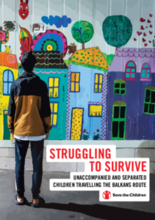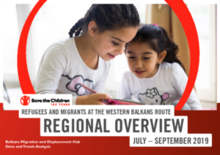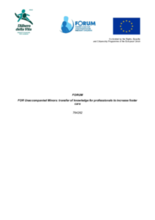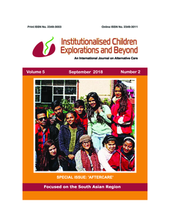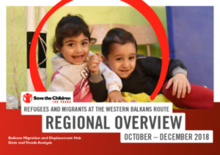Displaying 11 - 20 of 48
The study ”Struggling to Survive” identifies and deepens the understanding of informal practices used, and experiences of, unaccompanied and separated migrant children during the course of their migration journey.
Join this webinar to walk through the PROMISE Child Participation Tool and to discuss approaches and considerations for soliciting children’s views on their Barnahus experience.
The purpose of this webinar is to shed light on the specific experiences and issues of unaccompanied and separate girls in the European Response.
This factsheet highlights the developments and challenges still ahead in Serbia and offers key recommendations to the EU and the national government to ensure that children are cared for in family-based settings.
Data and Trend Analysis (DATA) Refugees and Migrants at the Western Balkans Route Regional Overview, covering period July - September 2019, describes key trends in migrations in the region, detailing information about the number of people on the move, demography (age, sex, country of origin, etc), behavioral patterns, and routes in use - with a focus on children, particularly unaccompanied children.
This article is written as part of the FORUM project (FOR Unaccompanied Minors: transfer of knowledge for professionals to increase foster care), an EU funded project which sought to enhance the capacity of professionals to provide quality foster care for unaccompanied migrant children, primarily through the transfer of knowledge. The article aims to contribute to this transfer of knowledge by bringing together literature which is of relevance to professionals developing or enhancing foster care services for unaccompanied migrant children.
This 10th issue of the Institutionalised Children Explorations and Beyond (ICEB) journal, released in September 2018, is a Special Focus issue on ‘Aftercare.’
UNICEF is seeking a Consultant for Strengthening Justice and Social Welfare Systems to Advance Child Protection in Serbia.
The 2017 country factsheets provide an update on the status of child protection and care reforms from 16 European countries that are the focus of Opening Doors for Europe’s Children campaign in Phase II.
Data and Trend Analysis (DATA) Refugees and Migrants at the Western Balkans Route Regional Overview, covering period October - December 2018, describes key trends in migrations in the region, detailing information about the number of people on the move, demography (age, sex, country of origin, etc), behavioral patterns, and routes in use - with a focus on children, particularly unaccompanied children. Data in this report includes key trends in Bulgaria, North Macedonia, Serbia, Albania, Montenegro, Bosnia and Herzegovina, and Croatia.

